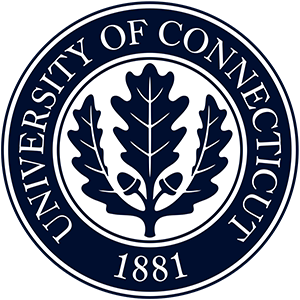University of Connecticut College of Agriculture, Health and Natural Resources
Storrs, CT
Founded in 1881
You’ll have experiences that prepare you to achieve your dreams

Suburban
setting
32,182
Students
53%
Acceptance Rate
$13,798 / $36,466
Tuition In-state / Out-of-state
Overview
School Website >>The College of Agriculture, Health and Natural Resources evolved from the original Storrs Agricultural School, which was established in 1881. As Connecticut’s land-grant university, UConn has federal and state mandates to carry out the tripartite mission of teaching, research and outreach education. The Storrs Agricultural Experiment Station administers the College’s research programs, while the Cooperative Extension System works with 40,000 volunteers and eight county extension councils to provide outreach education to Connecticut citizens. College faculty, staff and students explore the interrelationships among food, natural resources and human and animal health, seeking to connect them in a manner that is economically viable and environmentally sustainable.
Agricultural Degrees Offered
- Agriculture and Natural Resources
- Allied Health Sciences
- Animal Sciences
- Applied and Resource Economics
- Diagnostic Genetic Sciences
- Dietetics
- Environmental Sciences
- Environmental Studies
- Exercise Science
- Landscape Architecture
- Natural Resources
- Nutritional Sciences
- Pathobiology
- Plant Sciences
- Sustainable Plant and Soil Systems
Admissions
Total Enrollment: 32,182
Male Female Student Ratio: 50%/50%
Acceptance Rate: 53%
Applying
Application Fee: $80
Application Deadline: January 15
Target GPA: 3.1
Target SAT Score: 1250
Target ACT Score: 29
Tuition
In-State: $13,798
Out-of-State: $36,466
Student Fees: $3,428
Room and Board: $7,238
More Info
Religious Affiliation: non-denominational
Faculty/Student Ratio: 16/1
UConn Animal Barns and Spring Valley Student Farm
The Kellogg Dairy Center is equipped with a Voluntary Milking System (VMS; robotic milking system). With robotic milkers, the cows decide when they want to be milked (2 to 6 times per day). When she is ready, the cow will walk into the VMS and be fed a little food based on her needs and current milk production. The robotic arm will then clean and dry her udder, stimulate milk ejection release, milk the cow, and then send her back out into the herd. Meanwhile, the Spring Valley Student Farm sprouted in spring 2010 from a project planted by Residential Life. Since that time SVSF has blossomed into a year-round community for eleven student farmers living in two UConn houses 4.5 miles off campus. The student farmers learn about sustainable community living, organic food growing methods and the business aspects of how food is harvested, processed and presented to the UConn dining community.